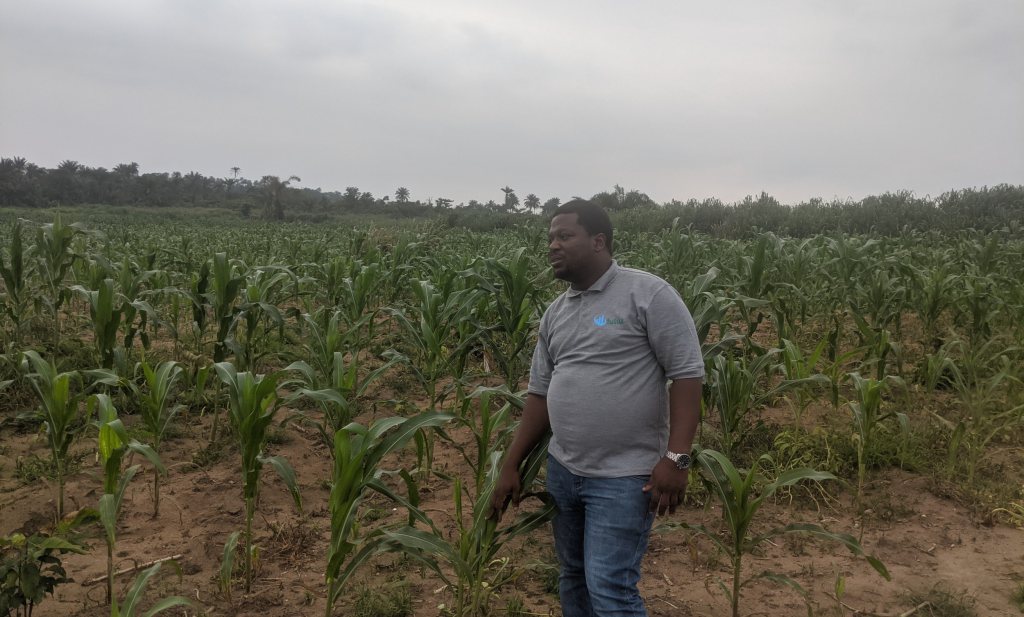Food is our greatest asset as it represents a common language everyone understands. The feeling of hunger is the same across tribes, nations and sex; there is no difference and only one thing solves hunger - Food.
Therefore, producing food should be a common practice and should never be seasonal. However, there are limitations faced by farmers while producing food; some factors are major while others minor. Their impact on the food system could be disastrous especially now that the food system is very weak as a result of multiple shocks; insecurity, pandemic, war, climate change etc.
It is therefore important that policies relating to food should take a bottom-top approach with the most important issues being addressed. And these issues can only be identified through a thorough process of data gathering; understanding the perspective of the key stakeholders in the agricultural sector, allowing them to diagnose the root causes and proffering solutions that are people and issue focused to achieve desired results.
Policies are excellent when they are developed from the appropriate premises- data driven.
Also, policies are excellent where and when only there is a political willingness to implement them with the right resources (human, financial, environment etc). Many times, policies are formulated but do not see the light of the day as the custodians are busy chasing other more important things aside from implementing them. Specifically in the agricultural sector in developing countries, policies are self and situation driven and hardly do we take conscious effort to drive its implementation. So, there is a need for the custodians or implementers of agriculture policies to be more committed to achieve a positive change and results using formulated agricultural policies as a tool for social change to improve agricultural productivity.
Finally, there is a need to create an enabling environment where two-way communication is possible (feedback and feed forward). Effective communication is important to ensure that policies formulated better serve the needs of everyone (inclusive), irrespective of the gender, age, status-quo or social status. Therefore, key stakeholders in the agricultural sector must understand that without the appropriate communication channels our efforts are put in jeopardy. In conclusion, a policy can be likened to the engine that powers a car or machines, without which it would not function at all. And the other important aspect is that even when a car or machine that has a good engine and at the same time does not have an experienced driver or operator is bound to yield no meaningful impact. Thus, good policies and appropriate implementers (with sufficient political will) are keys to agricultural growth.
Yours-in-Service
Babatunde
It is therefore important that policies relating to food should take a bottom-top approach with the most important issues being addressed. And these issues can only be identified through a thorough process of data gathering; understanding the perspective of the key stakeholders in the agricultural sector, allowing them to diagnose the root causes and proffering solutions that are people and issue focused to achieve desired results.
Policies are excellent when they are developed from the appropriate premises- data driven.
Also, policies are excellent where and when only there is a political willingness to implement them with the right resources (human, financial, environment etc). Many times, policies are formulated but do not see the light of the day as the custodians are busy chasing other more important things aside from implementing them. Specifically in the agricultural sector in developing countries, policies are self and situation driven and hardly do we take conscious effort to drive its implementation. So, there is a need for the custodians or implementers of agriculture policies to be more committed to achieve a positive change and results using formulated agricultural policies as a tool for social change to improve agricultural productivity.
Finally, there is a need to create an enabling environment where two-way communication is possible (feedback and feed forward). Effective communication is important to ensure that policies formulated better serve the needs of everyone (inclusive), irrespective of the gender, age, status-quo or social status. Therefore, key stakeholders in the agricultural sector must understand that without the appropriate communication channels our efforts are put in jeopardy. In conclusion, a policy can be likened to the engine that powers a car or machines, without which it would not function at all. And the other important aspect is that even when a car or machine that has a good engine and at the same time does not have an experienced driver or operator is bound to yield no meaningful impact. Thus, good policies and appropriate implementers (with sufficient political will) are keys to agricultural growth.
Yours-in-Service
Babatunde
Related



